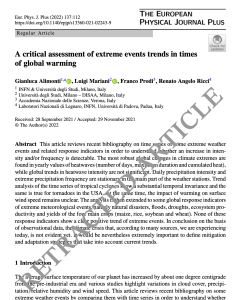Two anthropology organizations co-hosting a conference this fall have removed from the program a panel presentation entitled “Let’s Talk About Sex, Baby: Why biological sex remains a necessary analytic category in anthropology.”
The panel had been slated for the joint annual meeting of the American Anthropological Association (AAA) and Canadian Anthropology Society (CASCA), to be held in Toronto in November.
In a letter informing the panelists of the decision, Ramona Pérez and Monica Heller, presidents of the AAA and CASCA, respectively, wrote that the executive boards of the two groups had reviewed the submission “at the request of numerous members” and decided to remove it from the conference program. They wrote:
Continue reading Anthropology groups cancel conference panel on why biological sex is “necessary” for research








